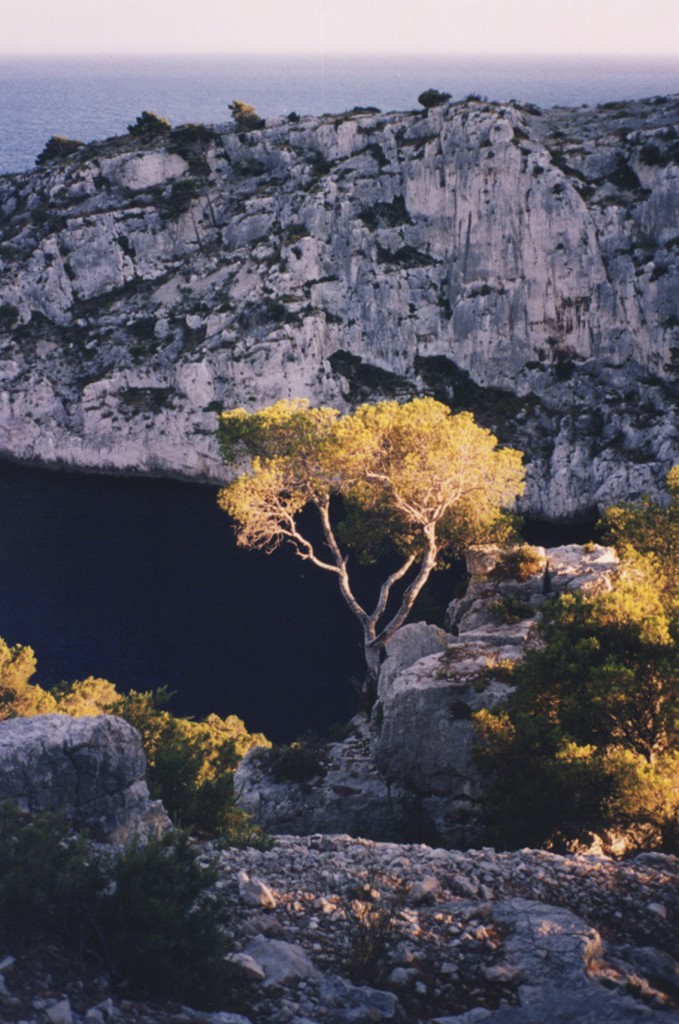One of Sheila’s most performed works, the Piano Preludes have been recorded by three artists — Gilbert Kalish on CRI (New World), Alexander Paley on Naxos, and Tanya Bannister on Albany Records.
Lauren Keiser Music Publishing has brought out a new edition.
Following is the program note:
My SIX PRÉLUDES POUR PIANO, d’après poèmes de Baudelaire, were composed in 1990 while I was in residence at the Camargo Foundation in Cassis, France, a small picturesque Mediterranean fishing village nestled under the magnificent cliff, Cap Canaille. The Preludes were commissioned for a concert celebrating the art exhibit: “Baudelaire: The Poet and his Painters,” (Heckscher Museum, Huntington, New York, October 1993) which featured prints, drawings, and etchings by famous 17th-20th century artists that either inspired Baudelaire or were inspired by his poetry.
The first prelude, La mer à Cassis (The Sea at Cassis), was inspired by Baudelaire’s poem La Musique in which the poet’s experience of listening to music is likened to a sailboat carried by the wind on the sea. “Music often takes me like the sea! Towards my pale star, under a foggy sky or in a vast ether, I set sail.” The prelude is water music–sometimes gently lapping, sometimes stormy.
The second prelude, La pendule (The Pendulum Clock), comes from the poem,Rêve parisien, in which the poet describes his dream of a city built of marble, metal and crystal–brilliant and surreal. As the clock strikes noon, he gradually awakes from his dream, peers around his tawdry garret apartment, and reflects with disillusionment on his life. The prelude begins with festive carnival-like music, during which the clock striking noon is heard as interruptive chords. The music between the chords is gradually transformed, symbolizing the change of the poet’s state, as he moves from his exhilarating dream to his dismal waking state.
The third prelude, La descent vers l’enfer (Descent into Hell), comes from the poem, L’Irremédiable. In it the poet describes a descent into hell, down a long spiraling staircase, with goblins and creatures jeering at every turn. The poem becomes nearly comic as monsters of all sorts poke their heads out. At the end comes “Judgment.”
The fourth prelude, Dans une fôret, demi-brulée (In the Half-burned Forest), takes its title from my experiences walking in a pine forest which had recently suffered a devastating fire. As I walked, I noticed bits of color which had survived and parts of trees and undergrowth which were not charred. Within a few months, a new growth of green carpeted the forest floor and wildflowers began to blossom. Baudelaire’s poem, Bohémiens en Voyage describes a similar image: It is a description of “La tribu prophétique” (the prophetic tribe) wandering in the desert. Although Baudelaire refers to gypsies, many critics believe that this is a metaphor for the biblical scene of the Jews wandering in the desert. At first everything seems bleak as they trudge along, heads bent, but gradually they begin to notice streams of water flowing from the rocks, birds singing, and flowers blossoming–as if by magic. The half-burned forest became my experiential metaphor for Baudelaire’s desert.
The fifth prelude, La, tout n’est qu’ ordre et beauté, Luxe, calme, et volupté(There all is Perfection and Beauty, Luxury, Calm, and Delight), is the refrain from one of Baudelaire’s most famous poems, L’Invitation au Voyage. The refrain reflects the poet’s dream of escaping to an exotic tropical island (although some critics claim he was actually dreaming of Holland) where all is bliss and perfection. The opening melody of the prelude is a literal setting of the words of this refrain and evokes the simplicity and calmness of the poet’s fantasy retreat.
The last prelude, Vers le paradis de mes rêves (Toward the Paradise of my Dreams) comes from the poem Le Vin des Amants and invites the reader to join in a drunken flight of escape–to lose one’s sorrows in wine and soar the heavens on winged horses, leaving all cares and troubles behind. – Sheila Silver

